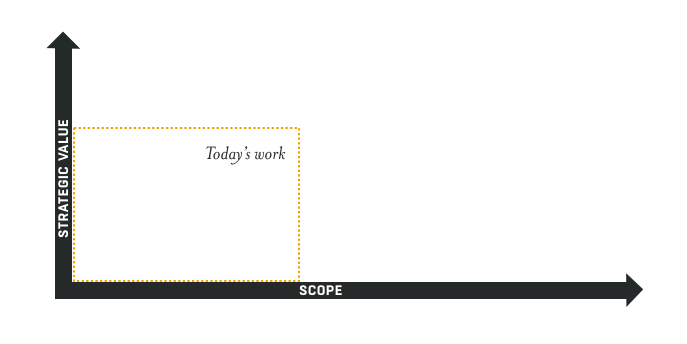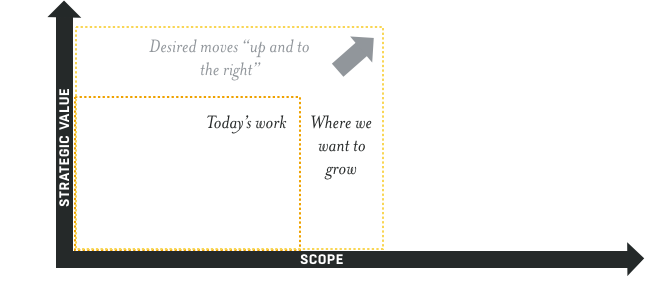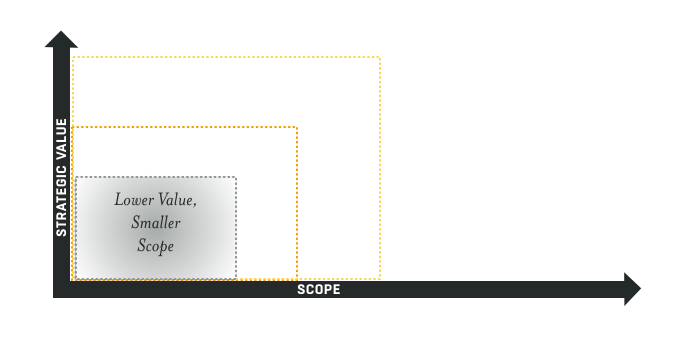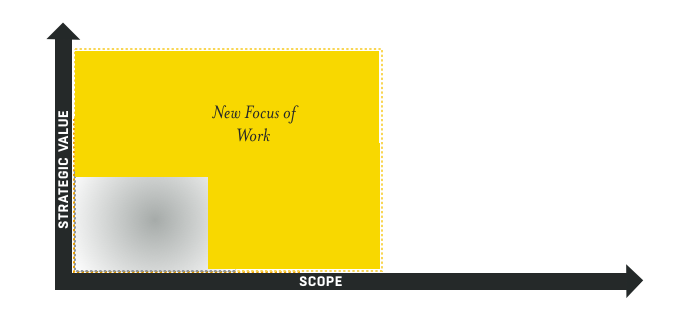 Fame. Recognition. Spotlights. Awards, Trophies and Plaques. I have a love/hate relationship with these things. At times, I’ve coveted them. At times, I’ve hidden from them. At times, I’ve acted like I’m hiding from them, but in my heart, I was pridefully wishing for them so that the world could see what a “great leader” I am. That is difficult to admit, but when I really look at my heart, it’s been a struggle much of my leadership life.
Fame. Recognition. Spotlights. Awards, Trophies and Plaques. I have a love/hate relationship with these things. At times, I’ve coveted them. At times, I’ve hidden from them. At times, I’ve acted like I’m hiding from them, but in my heart, I was pridefully wishing for them so that the world could see what a “great leader” I am. That is difficult to admit, but when I really look at my heart, it’s been a struggle much of my leadership life.
So, last week, when The Garage Group was up for the Inc. 5000 list of fastest growing companies and the Cincinnati Business Courier’s Fast 55 award (fastest growing companies in Cincinnati), I was a bit stuck.
Colossians 3:23-25 says:
Put your heart and soul into every activity you do, as though you are doing it for the Lord himself and not merely for others. For we know that we will receive a reward, an inheritance from the Lord, as we serve the Lord Yahweh, the Anointed One! A disciple will be repaid for what he has learned and followed, for God pays no attention to the titles or prestige of men.
I read this verse at the beginning of the week, before any awards were announced. And I knew I needed to really check myself as we went into the week.
Not only did we make the Inc. 5000 list again this year, but we WON the Fast 55 award for Cincinnati as the fastest growing company in our revenue range. In fact, our growth tops the whole list, across all income ranges. (Of course, there’s some math in there that makes that much more likely, since we’re growing from the smallest base income range).
And the celebrating and congratulating began across the team and among our partners.
And I sat, grateful for an exceptionally busy schedule that was a perfect excuse for me not publicly sharing the news or celebrating myself.
I was deep in my own heart, doubting myself and asking whether I was feeling proud, or grateful and humbled. This went on for days.
I have a mentor, who routinely drops wisdom that stops me in my tracks and causes me to reevaluate things. Several days into my internal conflict, I got this text from her:
“Just saw Business Courier! Garage Group! #1! Sweet. Congratulations! Explosion will continue! So proud of your leadership. Embrace the recognition!”
Embrace the recognition.
Matthew 5: 14-16: “Your lives light up the world. Let others see your light from a distance, for how can you hide a city that stands on a hilltop? And who would light a lamp and then hide it in an obscure place? Instead, it’s placed where everyone in the house can benefit from its light. So don’t hide your light! Let it shine brightly before others, so that the commendable things you do will shine as light upon them, and then they will give their praise to your Father in heaven.”
This type of award garners lots of attention. Like a bright spotlight. And the uncommon leader has a choice. To hide from the light, or step into it, which is actually what we’re called to do. To truly impact and influence for good, we must step into the light and embrace recognition.
All of us are attracted to light. In the dark, we stumble around to find a light, so that we can see clearly to find our way. We seek the sunlight to warm our skin and lift our mood. Think about the folks you most want to spend time with – they are likely those that are radiant, positive and joyful – light (which is not at all related to weight or skin color!). They often help us to find joy in the midst of sorrow, clarity in the midst of confusion, peace in the midst of chaos, or a path forward in the midst of the muck.
And this understanding is part of what makes the uncommon leader so uncommon. She or he embraces recognition, without pride or gloating, but with a confident, humble understanding that the stage and the spotlight aren’t at all about themselves, but rather the platform we are given for something so much bigger than ourselves.
These awards are simply a reflection of the truth that we hire and focus on growing amazing people; do great work with integrity and a measure of ownership, passion, and commitment; treat people with respect and dignity; and remember that it’s really about being obedient to use the gifts and talents we’ve been given in whatever way we’re called to do so.
The uncommon leader or company isn’t driven or motivated by rewards or recognition, but receives them humbly so that their light won’t be hidden.
So, I’m celebrating today!

This team is amazing. I am, every single day, blown away by our growth, by the incredible opportunities we have been given to provide jobs and nurture other leaders on our team and on our clients’ teams. And, I’m truly, authentically, humbled that God would choose me to do this. Most days, I recognize that I’m equally strong and weak, equally gifted and ignorant, equally smart and dependent.
Today, I’m uncommonly grateful and humbled.

 Most of us understand that there is a difference between happiness and joy. Happiness is circumstantial, surface level, and temporary; while joy is pervasive, deep, and lasting.
Most of us understand that there is a difference between happiness and joy. Happiness is circumstantial, surface level, and temporary; while joy is pervasive, deep, and lasting.
 A couple of years ago, someone called me out on being “Driven.” I’d been a driver of all kinds of things: change, progress, impact, results; (and of course, car loads of kids). And, I wore the adjective “Driven” as a badge of honor. A differentiator. A descriptor for my bio. I stood in it. Proudly.
A couple of years ago, someone called me out on being “Driven.” I’d been a driver of all kinds of things: change, progress, impact, results; (and of course, car loads of kids). And, I wore the adjective “Driven” as a badge of honor. A differentiator. A descriptor for my bio. I stood in it. Proudly.
 It’s been awhile since I’ve written.
It’s been awhile since I’ve written. Almost every leader I’ve met wants to grow in their ability to influence and impact others — essentially to drive change. (Incidentally, so much of leadership is really about helping people change: for example: to a new way of doing things, to a new way of thinking, to a new standard of excellence)
Almost every leader I’ve met wants to grow in their ability to influence and impact others — essentially to drive change. (Incidentally, so much of leadership is really about helping people change: for example: to a new way of doing things, to a new way of thinking, to a new standard of excellence)
 Almost every leader I’ve met wants to grow in their ability to influence and impact others — essentially to drive change. (Incidentally, so much of leadership is really about helping people change: for example: to a new way of doing things, to a new way of thinking, to a new standard of excellence)
Almost every leader I’ve met wants to grow in their ability to influence and impact others — essentially to drive change. (Incidentally, so much of leadership is really about helping people change: for example: to a new way of doing things, to a new way of thinking, to a new standard of excellence) Almost every leader I’ve met wants to grow in their ability to influence and impact others — essentially to drive change. (Incidentally, so much of leadership is really about helping people change: for example: to a new way of doing things, to a new way of thinking, to a new standard of excellence)
Almost every leader I’ve met wants to grow in their ability to influence and impact others — essentially to drive change. (Incidentally, so much of leadership is really about helping people change: for example: to a new way of doing things, to a new way of thinking, to a new standard of excellence)



